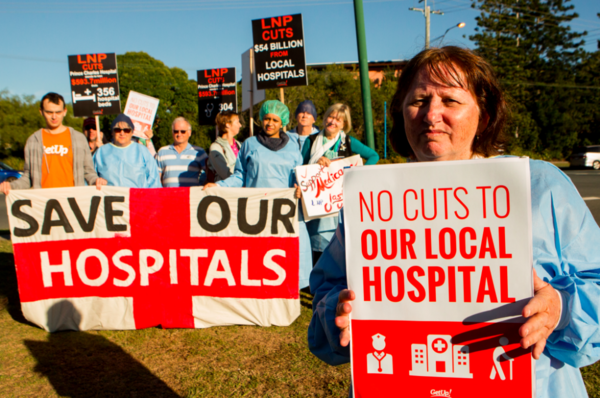Treasurer Scott Morrison today announced an optimistic $2.2 billion in “savings” to be obtained from further cracking down on welfare and pension recipients – money that that will be used to pay for tennis courts, CCTV and a number of community grants that have been promised for Liberal and marginal seats as part of the government’s increasingly desperate re-election pitch.
This comes in the wake of the Liberal Government’s ongoing defence of its billion dollar cuts to healthcare that will add a double hit to the budgets of families who are already on very low incomes.
Quotes attributable to ACTU President Ged Kearney:
- “It’s a cynical move, even for this government, to try and plug holes in its election promises costings by attempting to squeeze even more money from some of the most disadvantaged members of our community.”
- “Not content with coming after Medicare, Malcolm Turnbull has turned his attention to pensioners and people struggling on low incomes as he seeks to scrape together the money to pay for his $50 billion corporate tax break out and other election handouts.”
- “So called welfare crackdowns are usually the last refuge of desperate governments looking for quick political points or easy budget savings – this is not the sort of lazy politics we were promised when Malcolm Turnbull assumed office.”
- “It’s shocking that the Turnbull Government has waited till the last minute to make cuts to pensioners and welfare recipients – taking money from people who really need it and handing it over to billionaires and multi-nationals who don’t.”







